Ordinary People (1980) [Part 1]
/(spoilers ahead)
Ordinary People is an exceptionally observant movie about families, psychological problems and relationships. It shows hard truths about people and is not idealizing anything, which is not what I had expected from a 1980 movie. Its screenplay (by Alvin Sargent) is excellent in its dialogue and structure. Robert Redford’s direction is so deliberate, his touch is almost too visible (not for me, but I assume some people might be bothered by it). The acting is flawless throughout, it’s almost impossible to pick anyone. But overall, the movie is just good in the things it has to say and how it says them. It obviously worked in 1980, but I think it’s just as relevant today.
The film opens with idyllic images of the movie’s setting, the ocean, trees, houses and a choir, which is followed by a hard cut in which Conrad (Timothy Hudson, really good and better than he’d ever be later) wakes up as from a nightmare. Here the main theme of the movie comes right in: “ordinary” people living in a world that is nice and pretty on the surface, but boils with anxiety underneath. The next scene shows his parents, Beth (Mary Tyler Moore, impressive) and Calvin (Donald Sutherland, almost hard to watch because his performance is so good and he still ended up in so much crap), watching a play that mocks long-time married couples with jokes about sex. Beth smiles along like everyone else (those “oh, isn’t that funny” that are only possible if you switched off your brain), while Calvin is sleeping. We can see here already how he is playing along most of the time, but he doesn’t somewhere inside of him there is something bugging him about this life. They walk to their cars with their friends and note how Beth is able to small talk about nothing and to do some window shopping at the same time. It’s a “blink and you’ll miss it”-moment, but it’s there and shows off the superficiality about their lives once again. In their car, Beth asks Calvin what he was thinking about and he just asks “When?” Silence hangs in the air for some seconds while they look at each other, then just smile and hug, not talking again and keeping up the appearance of a good marriage. Calvin wants to talk to his son, who quickly pretends to be well and reading in bed, letting his mask fall again, the moment his father leaves. The night ends with seemingly romantic marital sex. The whole opening sequence is brilliant the way it evokes both all the clichés of a perfect marriage, while hinting at the cracks subtly and more directly shows the conflicts as impersonated by Conrad, the son, who is barely able to keep up the pretense. We see Calvin at least try to care about Conrad, while Beth all the way just smiles and never talks.
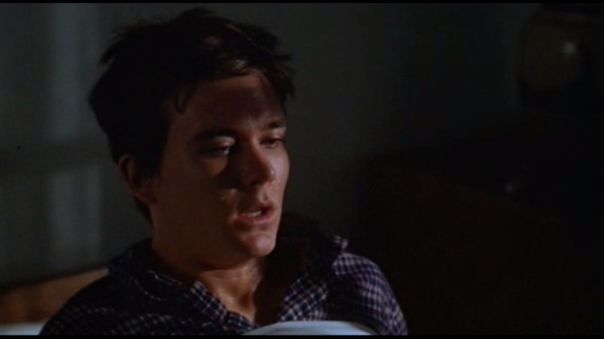
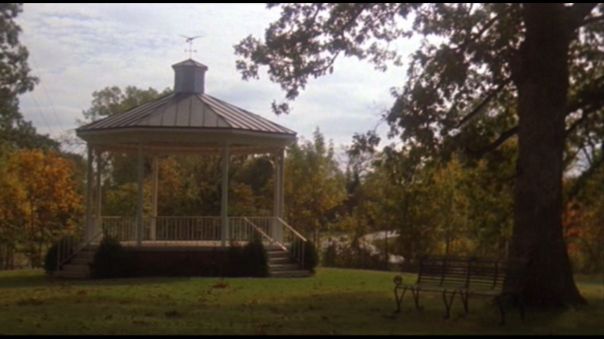
The next morning continues the pattern, there is order on the kitchen table, but not in Conrad’s head. When he’s unable to eat his breakfast, Beth can’t wait to throw it away, much to Calvin’s dismay who seems to see the pointless wasting of food. Her only response? “You can’t save French toast!” Again, this is how this society works, arbitrary rules that need to be followed. Conrad meets with his friends, but it’s clear he hates them and they don’t understand his feelings at all. He becomes a recluse, unable to perform what’s expected of him. In an excruciating dinner scene, the parents talk about absolutely nothing, while Conrad, always full of fear, has his feet apart, ready to run, while at the same time holding onto the chair he’s sitting on to not collapse.

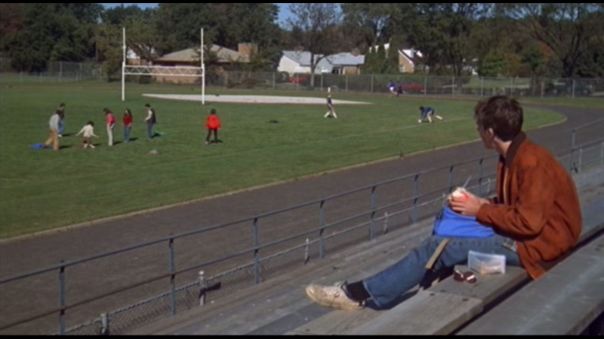
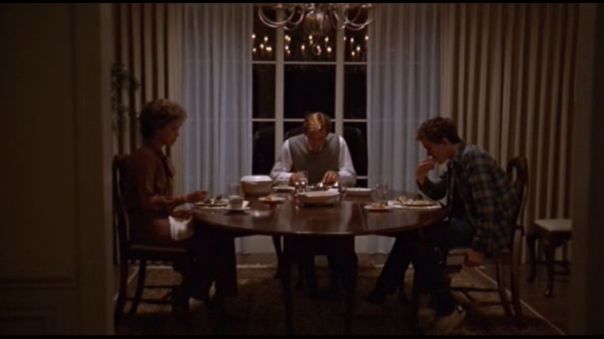
Still haunted by the trauma of losing his older brother and his suicide attempt, Conrad eventually visits a therapist, Dr. Berger (Judd Hirsch). Berger has been said to be a romantic depiction of a therapist, because he seems to know no boundaries. I’m not sure if there are therapists like him, but even if he’s a bit exaggerated, he stills seems like a very good therapists (and I know they exist). The movie fearlessly takes the stance that therapy is really helpful in our society, not just for someone suicidal like Conrad but also for someone like Calvin, who only gradually realizes he’s deeply unhappy with his life and wife. It’s very hard in this society to realize what has gone wrong, not just in general, but with every single one of us, hard to accept what we’ve been brought to, hard to think about changing anything and for that alone therapy is an extremely helpful tool. The movie is not critical of it and while it’s not the only narrative to do so (In Treatment is probably the best example of realistically depicting what therapy is like), it still stands apart from all the psychiatrist clichés that are so rampant in the rest of our culture, as if it’s afraid of them because they help people to see (and, yes, there are bad therapists, too). The movie goes even further by showing the prejudices people have towards therapy. When Conrad tells his parents about it, look at his quick, panicked look to his mother who immediately questions his decision to even see a therapist. Not directly of course, but her offhand comments make it clear, thereby separating herself from the rest of the family, as Calvin clearly supports Conrad’s decision.
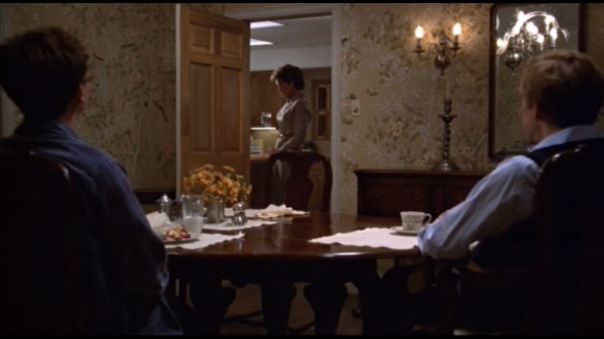
It becomes clear that Beth misses her older son Buck and probably, as Conrad suspects, loved him more. In one scene, she sits in Buck’s room staring at all his achievements when Conrad comes in. She is extremely shocked just to see him there, as if his mere presence in Buck’s room scares her. They talk away the unpleasant moment, but it becomes clear that she’s more interested in rearranging a plant than talking to her troubled son, showing just how repressed her emotions are.
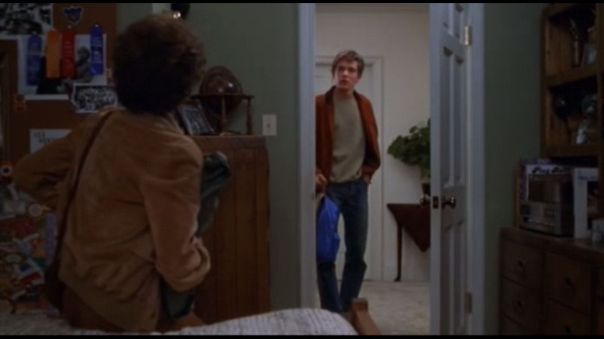
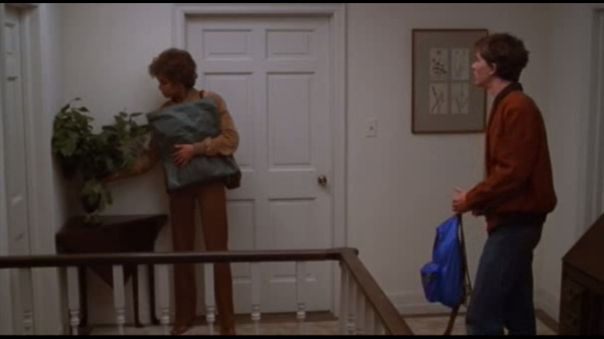
Calvin and Beth attend a party and you get tired just watching all the people doing their small talk (and awful big amount of small talk in this movie) and pretending to have a good time, while no one knows each other at all. Calvin tells a friend about Conrad’s therapy and when Beth notices it, she turns furious on their way home. She argues:
Well, for one thing, I don’t think people hear that kind of thing very easily. […] Well, I thought your blurting it out like that was in very bad taste. […] Not to mention a violation of privacy! […] Our privacy! The family’s privacy! I think it’s a very private matter.
She doesn’t express her real feelings of course. She is too scared to talk or even think about her own feelings, so it’s her own privacy she’s afraid of. She and Calvin drift more and more apart, just on that matter.
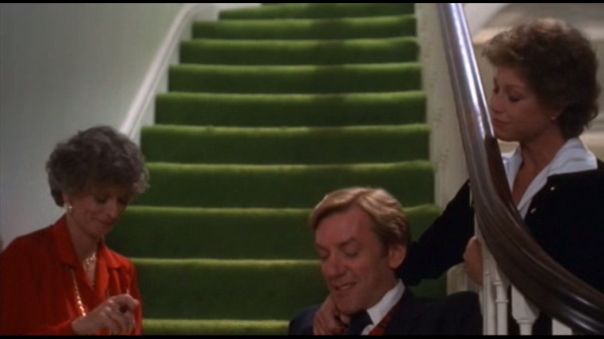
This will be another two-parter! I’ll go through the rest of the movie on Monday. It’s worth it!


